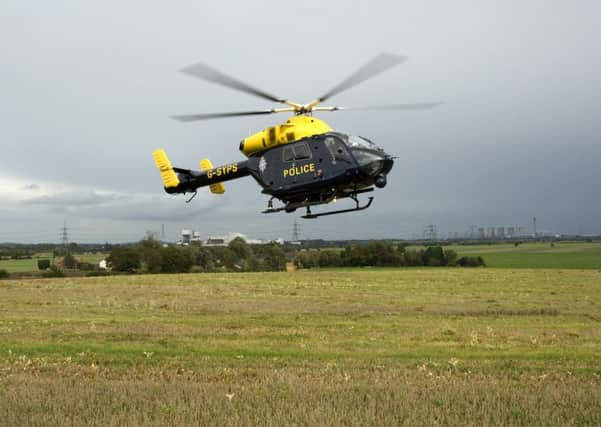Police air base loss ‘puts lives at risk’


The experienced former officer told The Gazette the increased response time will mean police on the Fylde coast will no longer be able to rely on a helicopter in an emergency once the National Police Air Service (NPAS) base at Warton closes in 2017.
Mike Pannett, who has previously spoken out in the media on a number of issues facing police and is campaigning against these latest cuts, claims the cost-saving measure will leave Blackpool “out of reach”.
He said: “It’s going to really hit hard in the area.
“It is finance over lives –it’s as simple as that.”
Advertisement
Hide AdAdvertisement
Hide AdThe Warton site is due to close in 2017, leaving Barton, in Salford, as the nearest base.
Warton is one of 10 due to close –five of them next year – under plans to reduce the number of bases across England and Wales to 15.
Mr Pannett added: “The impact of that is catastrophic as far as I’m concerned.
“Blackpool is a huge, densely populated resort in the summer and it’s not just crime the helicopters deal with – it’s vulnerable missing people as well.
Advertisement
Hide AdAdvertisement
Hide Ad“Millions of people will have no air support. This is going to cost lives.”
He blamed Home Office cuts for leaving the NPAS in a “critical” condition.
Lancashire’s Police and Crime Commissioner Clive Grunshaw said he will be discussing the impact of the plans with chief constable Steve Finnigan later in the week.
It comes after The Gazette revealed the number of police officers in Lancashire has fallen to a record low as the force struggles to cope with the level of Government cuts.
Advertisement
Hide AdAdvertisement
Hide AdMr Pannett, who served as a police officer for 20 years in North Yorkshire and London, said a map drawn up by people within the service – showing how far the helicopters can travel in 25 minutes from the moment a call comes in – paints a worrying picture.
The whole Fylde coast is outside the “fast response” zone – along with large chunks of England and Wales.
Mr Pannett said the transit time means officers will no longer be able to rely on a helicopter, which could already be deployed in another county, in emergency situations.
According to other estimates, most of the Fylde coast is within 20 minutes’ flying time of the nearest base – the measurement typically used by the NPAS – but critics argue that does not accurately reflect the time between requesting support and the helicopter arriving.
Advertisement
Hide AdAdvertisement
Hide AdBosses said it was “not easy” to take the decision to close the Warton base.
Last year, Lancashire Police, which like other forces contributes to NPAS’ running costs, spent almost £1.5m on the police helicopter, which was in the air over the county for a total of 575 hours.
An NPAS spokesman said: “NPAS deploy the nearest available aircraft and so any aircraft could attend an incident in a Force area but generally the aircraft will come from the closest base.
“Detailed analysis has taken place of the demands forces place on air support and the service required which has resulted in the model being developed based on delivering a service that manages threat, risk and harm.
“Aircraft are expensive assets that need to be used wisely.”
Lancashire Police declined to comment on the matter.